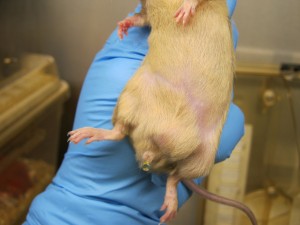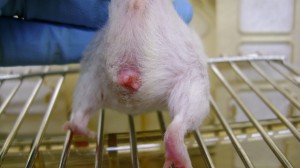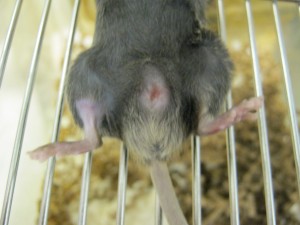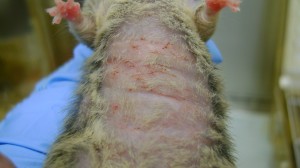Peter Singer’s Utilitarian Ethics
- Humans and animals share the same rights and their interest are valued equally
- Therefore: An experimental study that causes negative impact on a given number of animals is ethical as long as it cures a human disease and consequentially benefits significantly more human patients
Following this logic…
- It should also be ethical to castrate a certain proportion of human beings to prevent overpopulation and food and resource shortage in the future as long as there will be more members of our species benefiting from this decision…
But can we accept this?
1) Yes, neglect the rest of the page
2) No, please read on…
How Disease Modeling Directly Affects the Animal’s Welfare:
Its SURVIVAL and/or REPRODUCTION are impaired
- Common symptoms:
– dehydration
– abnormal posture
– swelling

– tissue masses

– prolapse

– barbering due to stress

– discolouration
– urine stain
– abscesses

– lesion

– alopecia

– ulcer

– microphthalmia
– malocclusion
– tachypnea
– blood in urine
– polyuria
– anuria
– blood in feces
– diarrhea
– hyper/hypo activity
– coma
– circling
– tremors
– convulsion/seizure - HOWEVER: It is BECAUSE these medical conditions significantly impede human function and fitness that scientists are motivated to research them in-depth and try to develop effective treatments against these diseases
- THEREFORE, is there really a JUSTIFIABLE reason to believe that mice and rats do not face the same fate and condone this?
